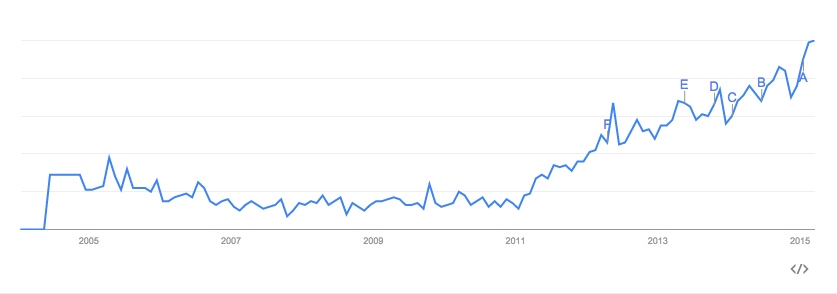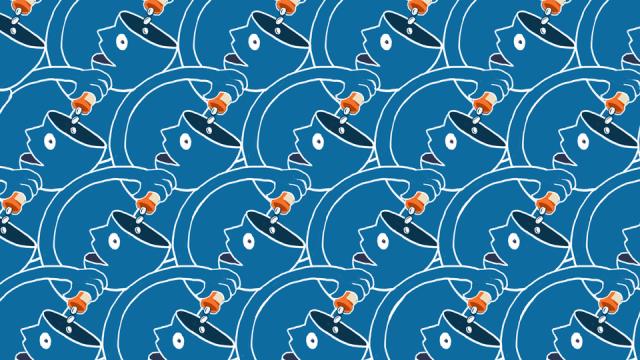Eric Matzner tells me he takes 30 to 40 pills a day. He is 27 and perfectly healthy. Thanks to the pills, he says he hasn’t had a cold in years. More importantly, the regime is supposed to optimise the hell out of his brain, smoothing right over the ravages of ageing, sleep deprivation and hangovers.
Not that a guy so obsessed with health drinks much anyway.
Matzner is the founder of Nootro, one of the many companies now purveying nootropics, or brain enhancement drugs. Depending on who you ask, nootropics could include everything from Adderall to caffeine, with an array of unregulated and largely untested chemicals like creatine and piracetam in between. The idea of nootropics has been around since the ’70s, but it’s enjoyed a recent swell of popularity, especially among the Silicon Valley bodyhacking and Soylent-guzzling set.
It’s tempting to dismiss a lot of this stuff as pseudoscience and snake oil because c’mon, have you read anything about the supplements industry lately? But if you peer through the hype around nootropics, there is something interesting afoot too. Online communities coalescing in forums like Longecity, Bluelight, and especially the subreddit /r/nootropics have become a massive crowdsourced science experiment.
Their DIY science is very imperfect, but these self-experimenters have found a legitimate gap in the drug industry: Brain enhancement drugs for healthy people don’t fit neatly into an FDA category, giving little incentive for pharmaceutical companies to test these drugs. Self-experimenters are going where pharmaceutical companies don’t dare go — yet.
But let’s not get ahead of ourselves.
Productivity Drugs
Like all categories vague and ill-defined, exactly what counts as a nootropic can depend on who you ask. The most familiar substances are ones that have sparked the most handwringing media coverage about abuse: Adderall, Ritalin and modafinil, the wakefulness drug given to Air Force pilots during long missions.
Some nootropics enthusiasts contend that drugs like modafinil — with dramatic effects and potentially dramatic side effects — do not count as nootropics. Or at least, they misrepresent nootropics, which include drugs that have a small but cumulative effect over the long term by optimising cognition. “The right analogy is compound interest. You’re not going to make a million dollars in a day,” says Michael Brandt, cofounder of the company Nootrobox. “If you can be 10 per cent more productive over the course of your 20s, the amount of throughput you can achieve is phenomenal.”
Other popular nootropics include the herb Bacopa Monnieri to enhance memory, the peptide noopept to combat cognitive decline, and L-theanine, an amino acid commonly found in tea. Nootropics could be plant-derived or synthesised in a lab. There are many, many more listed in /r/nootropics’s truly impressive FAQ for beginners. But two cognitive enhancers it recommends the most are — ready for it? — caffeine and L-theanine. In other words, coffee and tea. Groundbreaking, right?
As Amy Arnsten, a neuroscientist at Yale who studies how neuromodulators affect higher cognition, puts another way: “I don’t think there’s any drug that makes you Einstein if you start out Homer Simpson.”
Science or Pseudoscience?
If the recommendation of caffeine and L-theanine is disappointing for seekers of Bradley Cooper in Limitless-type superpowers, they do reveal that the /r/nootropics is pretty sober in its assessments of the science.
Its beginners guide opens with a 12-paragraph warning about the risks of tampering with brain chemistry. Its scientific summaries of individual substances list studies with evidence both for and against their effectiveness. For example, the entry for piracetam includes:
In one longitudinal study piracetam use was actually found to be associated with increased cognitive decline over 20 years, though the authors caution drawing conclusions given the small sample size in the piracetam group.
The individual threads themselves are more freewheeling, but ones dealing with unproven substances get a “high risk” label. The subreddit has actually become a source of accountability for a notoriously freewheeling industry.
Moderator MisterYouAreSoDumb told me that he helped organise a program to test the drugs, making sure they contain all the ingredients listed on the labels. A couple of well-known vendors donated money to do the tests, which are usually done at a chemistry lab in Tennessee called Colmaric Analyticals.
“I made it known to all the vendors that I would be anonymously getting sample from them from time to time, and testing them for purity,” MisterYouAreSoDumb said. “Now it is standard for vendors to have third party testing in place. We only list vendors that have testing programs in our reliable supplier list as well.” Manufacturers that falsely label their products are publicly called out in the forum. Of course, this testing only determines whether the labels are accurate. Whether the drugs work as purported is another story.
Given all the self-experimentation among its members, the group is making every effort to help its members use the nootropics responsibly. On /r/nootropics and its sister subreddit /r/StackAdvice (“stack” refers to the combo of pills), users dish out advice and reports on new drugs, combinations, and dosages. “Best Noots for Depression?,” asks one user. “Does l-theanine cause dissociation?” asks another.
The Problem of Crowdsourcing Clinical Trials
Even if we accept that individuals are free to take whatever risks they want experimenting on themselves, there’s still a glaring problem with using their results as data: the placebo effect. A patient given a sugar pill can almost miraculously improve their test scores. A college student given alcohol-free beer will act drunk.
“Anything that isn’t placebo-controlled, it’s probably not worth anything,” says Arnsten, the Yale neuroscientist. But that doesn’t mean takers of nootropics aren’t deriving real benefits from popping pills. “A lot of my work is on how stress is impairing higher cognition. If you’re taking something and you think it is making you better and you relax, the placebo effect could be very powerful.”
There is no way to know for sure without blind placebo-controlled trials, which to be fair, Redditors have sporadically attempted. But a pseudoanonymous internet forum with participants flung all over the globe is not exactly the best place for trials that need to keep track of dozens, potentially even hundreds, of people.
Confounding factors, aka all the outside influences that can affect the outcome of a study, are also hard to weed out in single-person studies. For example, work can be incredibly stressful the week leading up to a big launch, and then easygoing the week water. Depending on which week you do a brain test, your results will be very different. Clinical trials, however, enrol as many people as logically feasible, so that these confounding factors are averaged out.
And it’s not as if these problems are endemic to crowdsourced research. Even science from prestigious researchers, published in legitimate journals, can be wrong. The scientific literature is littered with once-promising drugs that did not pan out. Take piracetam, for example, the drug for which “nootropics” was originally coined. Early studies beginning 1970s found possible benefits to piracetam, especially in the elderly, but this hasn’t always panned out with further studies. There’s no clear evidence it benefits healthy 20-somethings when taken over the long term.
At the same time, most of these substances are so new that there aren’t many longterm studies, especially in healthy 20-somethings. Suppliers of nootropics are well poised to exploit this ambiguity.
To its credit, the community is self-aware about all these problems. In one thread asking, “Is this a dangerous subreddit filled with pseudoscience?,” a user summed it up pretty succinctly:
I think thats worth keeping in mind while browsing here – this is a labrat sub. What we do has often just been done on guinea pigs before.We are human testers for non-medical reasons and everybody must know for himself how far he is willing to go.
The Self-Experimenters
When it comes to clinical research and regulation, nootropics largely exist in a grey area. “In the US, we don’t have categories for enhancement. Even if they have trials that exist, there is no FDA category for them,” says Matzner. And he’s right.
The FDA is set up to approve drugs for treating disorders. You have Adderall for treating ADHD or modafinil for narcolepsy. It does not, however, have any framework for regulating drugs optimising the brains of the perfectly healthy. If drug companies who don’t see a clear path for getting a new class of drugs approved, why risk all the money into developing one?
Arnsten also points out that experiments usually begin in mice and rodents, whose higher cortexes are utterly distinct from ours. But no ethical review board is going to take kindly to jumping straight to human trials. Perhaps this is where large body of self-experimenters, who are willing to take the risk, comes in. At the very least, these communities demonstrate that the market for cognitive enhancers is very real.

Google Trends for “nootropics”
The current swelling of interest in nootropics might very well be a product of our time, an era obsessed with achievement and productivity. In 2008, an editorial by several top researchers in Nature advocated a responsible way to deal with what seemed like an inevitable future.
We should welcome new methods of improving our brain function” while noting that responsible. In a world in which human workspans and lifespans are increasing, cognitive enhancement tools — including the pharmacological — will be increasingly useful for improved quality of life and extended work productivity, as well as to stave off normal and pathological age-related cognitive declines.”
Cognitive enhancement drugs may make some of us nervous, but most of us accept caffeine as a perfectly legitimate perk-me-up. Millions of us will profess to being nonfunctional without coffee, and just a tad too much makes us jittery as hell. Nootropics may just be the next iteration of caffeine. If cognitive enhancement is the future, then nootropics users are the ones pushing it forward, DIY-style.
Illustration: Jim Cooke
